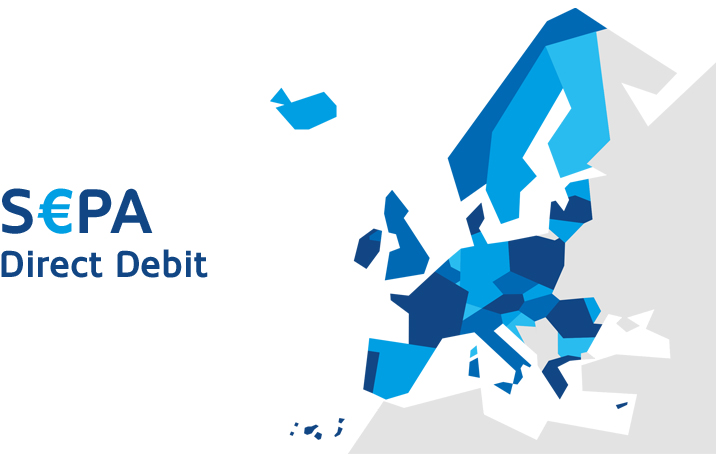SEPA Direct Debit: everything you need to know about the European regulation on Direct Debits
MoraBanking | 05.25.2021 | MoraBanc editorial staff

In March 2019, Andorra became part of the Single Euro Payments Area (SEPA), which meant the adoption of the regulation for transfers and card payments. Andorra’s membership of the SEPA Direct Debit (SDD) scheme will be implemented from May 2021. This milestone brings with it a number of changes for individuals and businesses that issue and receive Direct Debits.
One advantage of belonging to the SEPA area is greater ease, security, efficiency and speed when making payments, as well as the elimination of barriers to international payments between member countries. Improvements include the ability to use a single account for Direct Debit payments in any SEPA area country and extended cut-off times for the return of Direct Debits. This eliminates the need to have an account in another country (if in the SEPA area) to pay second home expenses by Direct Debit, for example, as these payments can now be collected from an Andorran account.
At the administrative level there are a number of changes that affect the relationship between creditors and debtors. Andorran Banking has provided a one-year period when the current ABA-09 standard for Direct Debits and the new SEPA Direct Debit standard will run in parallel, allowing individuals and companies that issue Direct Debits to adapt to the change and reduce its impact on their activities. Here are the main changes.
Key concepts of the SEPA Direct Debit standard
A few key concepts from the new SEPA Direct Debit regulation.
a. The single Direct Debit mandate
A mandate is an instruction to set up a Direct Debit. It must be created by the company or business issuing the Direct Debit (the payee) and signed physically or electronically by the debtor (the payer). The creditor or payee is responsible for the custody of the signed mandate for the Direct Debit. All mandates must include the following mandatory fields:
- Scheme.
- Unique mandate reference (UMR).
- Name of the payer.
- Payer’s account number (IBAN).
- Payer’s postal address (non-Andorran IBAN).
- BIC code of the payer’s bank (BIC).
- SEPA creditor identifier (Creditor ID).
- Name of the payee.
- Payment type.
- Mandate signature date.
- Signature(s).
It should be noted that:
- The creditor must hold a mandate before collecting the amounts from the account.
- A mandate will be considered to already exist if there is a pre-existing business relationship on the date the SEPA Direct Debit scheme enters into force in Andorra (10 May).
- Mandates expire 36 months after the last payment.
- The creditor must retain the signed mandate for a minimum of 14 months after the last direct debit collection.
- The creditor inform the payer’s postal address as long as his IBAN is not Andorran.
b. SEPA creditor ID (Creditor ID)
This is the identification code of the company or business issuing the bills. It is the equivalent of the ABA Company Code. In Andorra it takes the following format: AD00ZZZF123456R where
AD = ISO country code (Andorra);
00 = control codes;
ZZZ = sequential code of the payee to identify different types of collection; in the case of state-owned companies, this is the ABA company code common to these entities;
F123456R = tax reference number (NRT) of the payee, without spaces or hyphens. In the case of entities without an NRT (communities of owners, associations, etc.), a company identification code (COEM) will be provided by MoraBanc.
This code is registered by each bank in their computer systems at the request of the payee. It is essential to be able to process SEPA Direct Debit remittances via online banking or any other channels.
c. Unique mandate reference (UMR)
The mandate reference code with a maximum of 35 characters as defined in the ISO 20022 Standard Character Encoding Table (upper or lower case letters, numbers and other orthographic signs or spaces). However, it is recommended not to use spelling marks or spaces. The company or business issuing the bill must provide this number in a Direct Debit remittance file.
d. Payer account number (IBAN)
Just as with the the ABA-09 standard, the payer’s IBAN must also be supplied.
e. BIC code for the payer’s bank (BIC)
The new SEPA-DD regulation make it compulsory to supply the payer’s BIC on the mandate that the customer is asked to sign.
f. Scheme (CORE/B2B)
This is the modality that allows you to make collections by charging them to the debtor’s account, whether they are a consumer, company or self-employed. Initially, it will only be possible to use the CORE scheme to issue Direct Debits in Andorra.
g. The type of payment (one-off or recurring)
The mandate must specify whether the payment is one-off or recurring.
SEPA Direct Debit circuit, remittance and Direct Debit return cut-off times
The new SEPA Direct Debit regulation establishes the following circuit when issuing Direct Debits:
- The creditor sends the mandate to the debtor.
- The debtor completes the mandate with the required information and returns it signed to the creditor.
- The creditor receives and retains the mandate. If the reference is not known at the time of sending the mandate, it will be provided to the debtor at a later date.
- The creditor sends the collection file with the Direct Debit data and the mandate identification data to its bank.
- The remittance is credited to the Direct Debit issuer or payee to make collection from the debtors or payers.
Deadlines for sending remittances to the bank
Direct Debit remittances must be submitted to the bank one day before the due date. The cut-off time to submit them to the interbank exchange systems is as follows:
- Direct Debits from Andorran banks: must be submitted the day before they are due (D-1) by 15:00;
- Direct Debits from foreign banks within the SEPA area: must be submitted by 7:45 on D-1.
If the remittances are received after these cut-off times, they will be processed the next business day.
Cut-off time for the return of Direct Debits
With the entry into force of the SEPA Direct Debit rules, the cut-off times for the return of a Direct Debit are as follows:
- During the first 5 business days, a refund can be requested for any reason (wrong IBAN, insufficient balance, duplicate payment, etc.).
- Between the 6th business day and 56 calendar days (8 weeks), the refund can only be made at the customer’s request.
- More than 8 weeks and up to 13 months for unauthorised payments (at the customer’s request if the customer claims that the payment is not supported by a signed mandate). The payee should then provide proof that they hold the mandate and that this has been signed by the customer.
If you issue Direct Debits through MoraBanc Online, find out all the details about how this regulation affects you in this post on our blog.
Do you still have questions? Contact your personal manager or call us on 884 884.
Information on the processing of personal data
In compliance with Law 15/2003 of 18 December on protection of personal data, the customer authorizes that the applicant’s personal data entered on this form will be incorporated into files owned and managed by MORA BANC GRUP, SA – MORA BANC, SAU (hereafter referred to as “MoraBanc”) to process the requested service and, if necessary, to comply with the contracts finally entered into, and also to ensure correct operational procedures.
The applicant expressly authorises MoraBanc to send him/her commercial and promotional communications for products and services and information on the Bank itself, social or other activities, in hardcopy by post or by electronic means (among others, short messages (SMS) to mobile phones, e-mail, etc.). This consent can always be withdrawn, without retroactive effect.
The fact of filling out this form implies that the applicant acknowledges that the information and personal data provided are true, accurate and correct; otherwise, MoraBanc declines all responsibility for the lack of truthfulness or correctness of the data.
The applicant authorises the data provided to be communicated or shared with third parties forming part of the MoraBanc business group, entities which are primarily active in the financial, insurance and service sectors. The applicant is considered as having been informed of this transfer of information by means of this clause. The applicant accepts that he/she may be sent information on any product or service marketed by these companies.
The data processing manager is MoraBanc. The applicant is hereby informed that the rights of access, rectification, suppression or opposition may be exercised in the terms established in current legislation.






